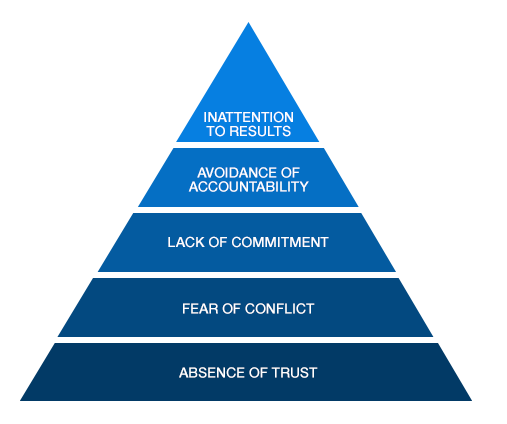Short, office-removed activities will most likely not create meaningful culture change when your team comes across a difficult project or a 'fire'. It is cool your team is going to these steps to build cohesion, regardless, and I don't doubt it is making your team more comfortable with each other.
The important thing with these aspects, like "trust" is that your team has to trust each other in the sense that you are all working towards a common goal. Your team is trusting enough with each other on a professional level that they are comfortable saying "I don't know", or "I don't think that is the best solution" without fear of being reprimanded by a higher up or a head-strong co-worker. Trust is embodied when people feel like they can hash out disagreements over solutions to a problem without individual egos getting in the way. The toy bomb thing is cool, I wouldn't mind if our team did that purely for fun. But I am skeptical that will carry over when your company comes across an extremely difficult client (or whatever the equivalent is in your industry), your team will be too caught up in the moment to remember that time when they all had a good time with that toy bomb.
Our team once tried to sit in a circle and share 'a past hardship' to build trust. While it certainly made everyone on the team more aware of peoples' feelings, I would argue it did little, if anything, to directly affect communication over solving business problems.
The comment by teego1967 is very apt, your activity is every opportunity that arises in your workplace. You can not do an activity outside of work once, twice, or even 100 times and say "we trust each other in the workplace during times of difficult decision making" and be true to the teachings in Lencioni's books. It is a continuous growth kind of thing that everyone needs to be always striving for.
For "Commitment", next time there is a meeting, make sure everyone knows exactly what the game plan is, and who is doing what, when they should have their portion done or when you will reconvene to pull everything together. They should be committed to that task, and others in the company will hold them "Accountable" by following up on their task results.
If people are walking away from your meetings 'not sure' what they are supposed to do because the meeting ended on an airy note of "okay so that wraps up this meeting, everyone should have figured out how they can contribute to the problem by the content of the meeting", then how can they commit to anything with a level of confidence that the entire team is on the same page as them, and how can anyone hold someone accountable if no one knows what anyone committed to?
Try to find ways to actively encourage change within the office on day to day tasks and exchanges. Nothing is going to directly affect office interaction more than continuous effort within the office - outside activities will always have some disconnect to the office environment.

